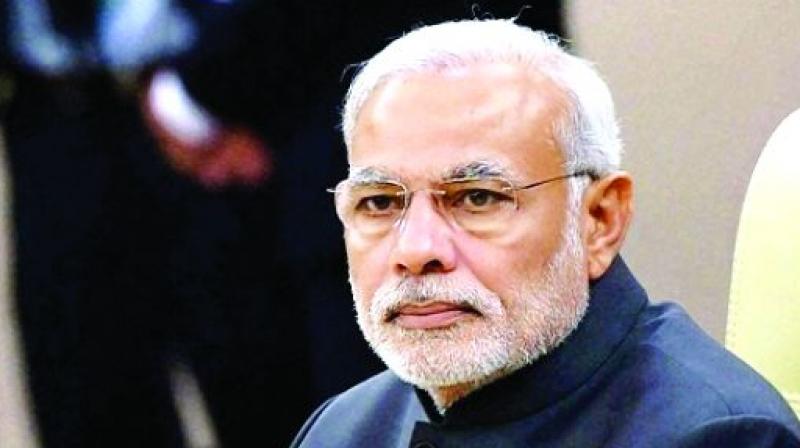Give Maldives every kind of help it needs
Mr Modi may find useful ideas embedded in the documents during the visit to Male in 2011 by then Prime Minister Manmohan Singh.

Prime Minister Narendra Modi was the only foreign leader to be invited to attend the swearing-in of the recently-elected President of the Maldives, Ibrahim Mohamed Solih, in Male on Saturday. That tells its own story. This development also holds out the promise of the retreat of Chinese power from the archipelago nation through the five years of Mr Solih’s predecessor, Abdulla Yameen, that ended earlier this month following the September election.
The opportunity now given to India to be restored to its position of pre-eminence in the Maldives that had prevailed in the pre-Yameen period is due to a surprise election result that no one saw coming as a rank outsider found himself in the President’s chair. In that sense, if India finds itself once more on terms of close friendship with Male, it can only be ascribe to favourable celestial winds.
The Maldives’ strategic location in the Indian Ocean, controlling vital sea lanes and enjoying an intermediate physical position between India and the equator, had long been eyed by China, which moved in with clear intent after 2011 and found a clear opening when the country’s first democratically-elected President Mohamed Nasheed lost to Mr Yameen in 2013.
A time of great shock followed for the Maldives as the new leader launched on a despotic course, a process that seemed to be backed only by Beijing and Islamabad. The chief justice and a judge of the Supreme Court were arrested, Opposition leaders were not released from prison despite a Supreme Court order, and Parliament was jeopardised.
In this period, Mr Yameen insulted India in a variety of ways as it rode over New Delhi’s sensibilities, and threw out its projects and its personnel. It invited China to undertake big infrastructure works and leased Beijing 17 islands to set up so-called observation posts, evidently a ruse for a military buildup. It is a miracle that Mr Yameen actually called polls. Perhaps he was over-confident about winning.
As in Sri Lanka, in the Maldives too the government found itself in huge debt to the Chinese, apparently to the extent of 25 per cent of its GDP. It is doubtful that it will be in any position to return such large sums without external help. Mr Solih complained to Mr Modi about this. India’s assistance has thus been sought, and New Delhi’s work is cut out. Now that India is being courted by Male to return to the path of their earlier friendship, it is necessary to extend every kind of support and advice. Mr Modi may find useful ideas embedded in the documents during the visit to Male in 2011 by then Prime Minister Manmohan Singh.
Learn from US media
Will India ever have an Acosta moment? Jim Acosta was the CNN journalist whose White House press accreditation was taken away from him after he asked US President Donald Trump unwelcome questions at a press conference. His press pass was, however, restored by a US federal judge citing America’s First Amendment, that protects the right to freedom of expression. Acosta also had the support of not only his employers, CNN, but of the entire media. In India, freedom of speech is guaranteed by our Constitution but it is said that in this country this freedom is really of the owners of the media. There was a recent case of two television channel journalists having to resign after they had exposed the ground situation over the implementation of a government scheme, that turned out to be a sham. This angered the government and the journalists had to resign as they didn’t get the backing of the owners, who feared the wrath of the government. Significantly, other sections of the media didn’t show much concern or support.
Perhaps these owners acted in haste and were more loyal than the king. In this context, it might be appropriate to quote Prime Minister Narendra Modi, who on the occasion of the 37th anniversary of the Emergency imposed by Prime Minister Indira Gandhi in 1975 had talked of this country’s basic values like freedom of expression that were threatened by the Emergency. He referred to his book Apatkalme Gujarat (Gujarat during the Emergency), where he had mapped out the mass movements and other heroic deeds of those in Gujarat who opposed the Emergency.

